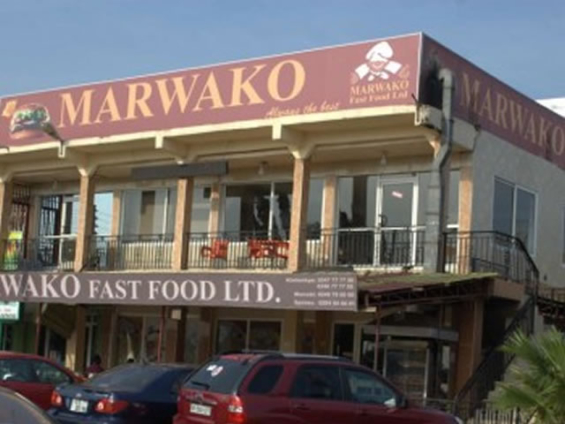The Executive Director of the Bureau of Public Safety, Nana Yaw Akwada, says whereas the Marwako food poisoning is not an incident in isolation, the poor regulatory practices of the Food and Drugs Authority hampers the maintenance of high food safety standards in the country.
He stated that the state of food safety in the country is far worse than most people think, and this is largely due to the failure of the FDA to see to it that food vendors adhere to strict hygiene protocols among others.
“Look, food safety in our country is nothing you want to write home about. We are living merely at the mercy of our own immune system. I am yet to see people really rise up to food safety standards, but there are various institutions who are all tasked to ensure that food safety is guaranteed,” he said on JoyNews’ PM Express.
According to him, due to the lack of vigorous inspections and general regulation of the food hospitality industry, most players in the industry have resorted to self-regulation.
Self-regulation, he said, is not the safest way to ensure consumers are being served uncontaminated food.
“As to whether these institutions are working or that the entities themselves who are self-regulating, I believe that by the time we’re done with this programme, we’ll know.
“As far as we’re concerned we believe largely and we have observed largely that these institutions are not as active or as working as they ought to, and that most of the things that our friend from the hotel will be sharing with us will probably be their own self-regulation.
“In any industrial space, this will not be or should not be enough to regulate the space for us as far as food safety is concerned,” he said.
His comments are in reaction to findings by the FDA that the food poisoning incident that led to the subsequent closure of Marwako fast food centres in Accra was as a result of poor sanitation, poor storage and microbial infestation.
In a statement issued on Monday, June 13, the FDA explained that based on its findings, the eatery failed to observe the appropriate sanitary practices, leading to widespread food poisoning, which was reported by affected customers.
“Analyses of samples of food, some juice drinks, and swaps taken from the environment at the East Legon branch of Mawarko Fast Food Limited indicate that there was heavy microbial load (pathogens) which may be linked to the food borne disease reported.
Samples collected from the Abelenkpe and La branches were also found to be contaminated. The levels of sanitation and hygiene in the food preparation areas in all three facilities were poor”, portions of the statement read.
The FDA’s release continued: “It was also established that there were poor storage practices. The temperatures of deep freezers and refrigerators were far above the acceptable ranges. The handling practices of ingredients used in cooking, cooked and ready-to-eat food items were also very poor”.
Latest Stories
-
We’ll restore hope by cutting down taxes and avoiding unreasonable borrowing – Ato Forson
43 seconds -
14th Edition of Tech in Ghana Conference launched in Accra
1 min -
Manifesto clash: NPP, NDC spar over water, hygiene, sanitation and climate change
8 mins -
Ellembelle MP constructs new health facility at Santaso to serve several communities
12 mins -
Kwasi Appiah wanted to axe Ayew brothers and Wakaso from Black Stars – Ernest Thompson reveals
19 mins -
AngloGold Ashanti empowers PWDs in Obuasi East to harness 10-year socio-economic development plan
22 mins -
‘Dumsor’ won’t go anytime soon, we need 2 years to stabilize- IES
28 mins -
Black Stars Management Committee does a good job – Ernest Thompson
31 mins -
GFA set to launch Girls for Goals campaign in Keta
33 mins -
Siisi Baidoo wins Male Vocalist at 2024 Praise Achievement Awards
38 mins -
Perez Musik celebrates marriage with breathtaking photos
1 hour -
I am not ready to sign any artiste to my record label – Kuami Eugene
2 hours -
Gov’t spokesperson on governance & security calls for probe into ballot paper errors
2 hours -
Free dialysis treatment to be available in 40 facilities from December 1 – NHIA CEO
2 hours -
NHIA will need GHC57 million annually to fund free dialysis treatment – NHIA CEO
2 hours

